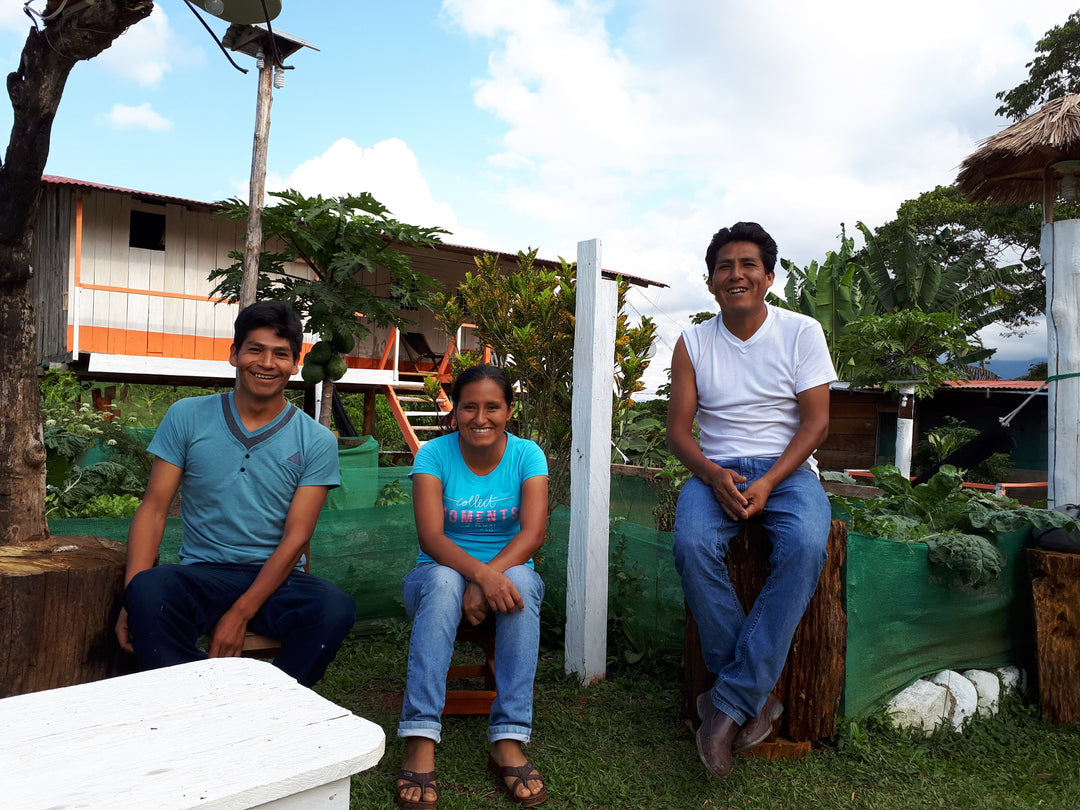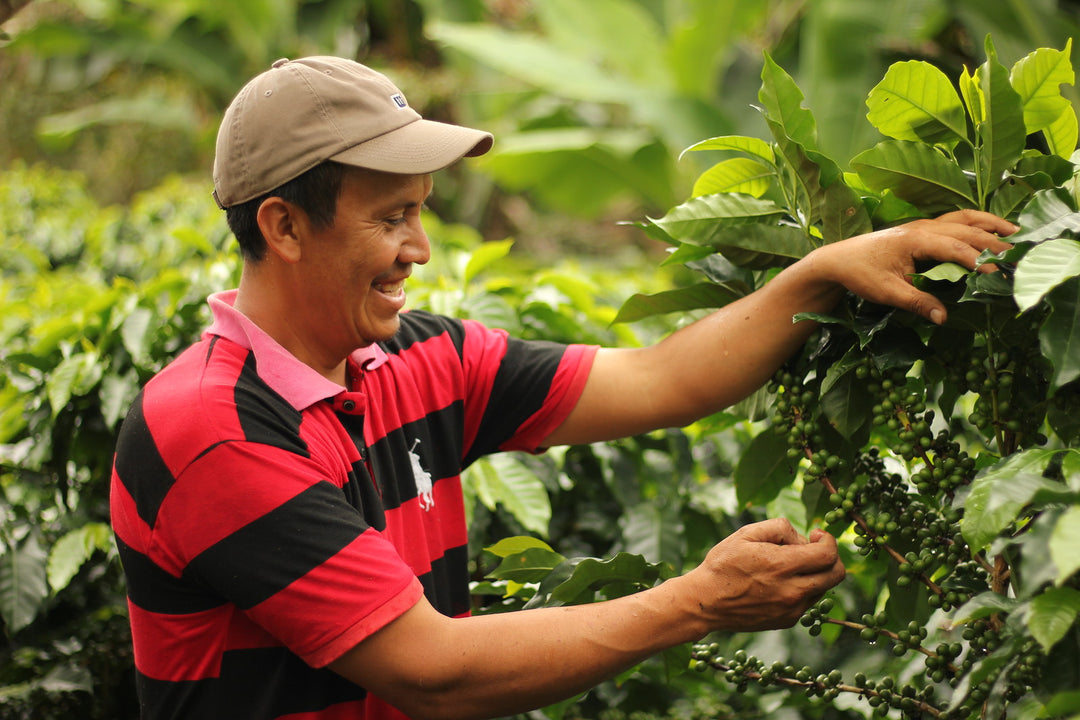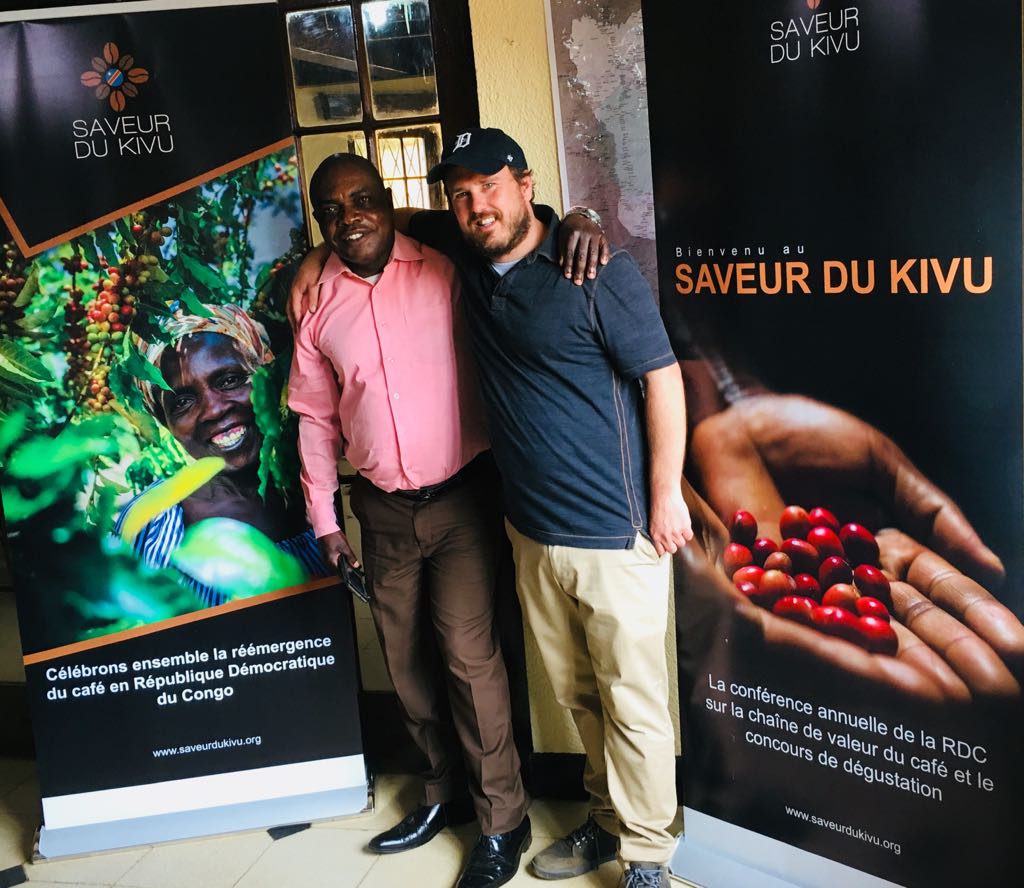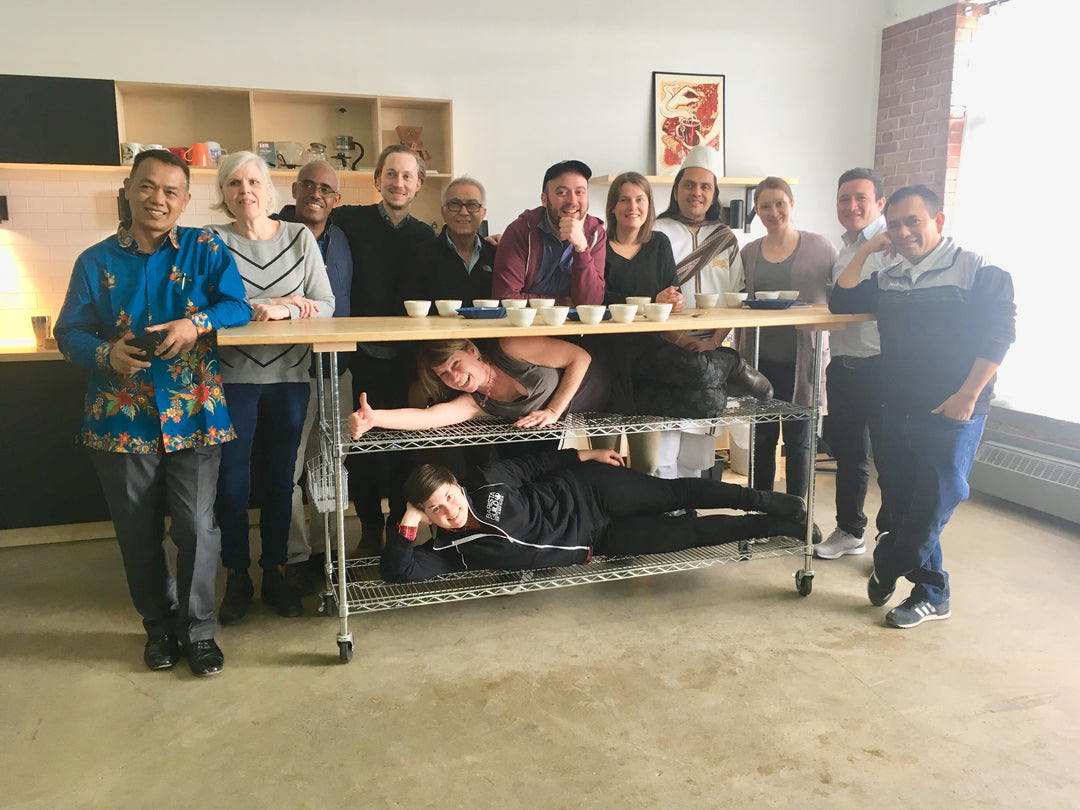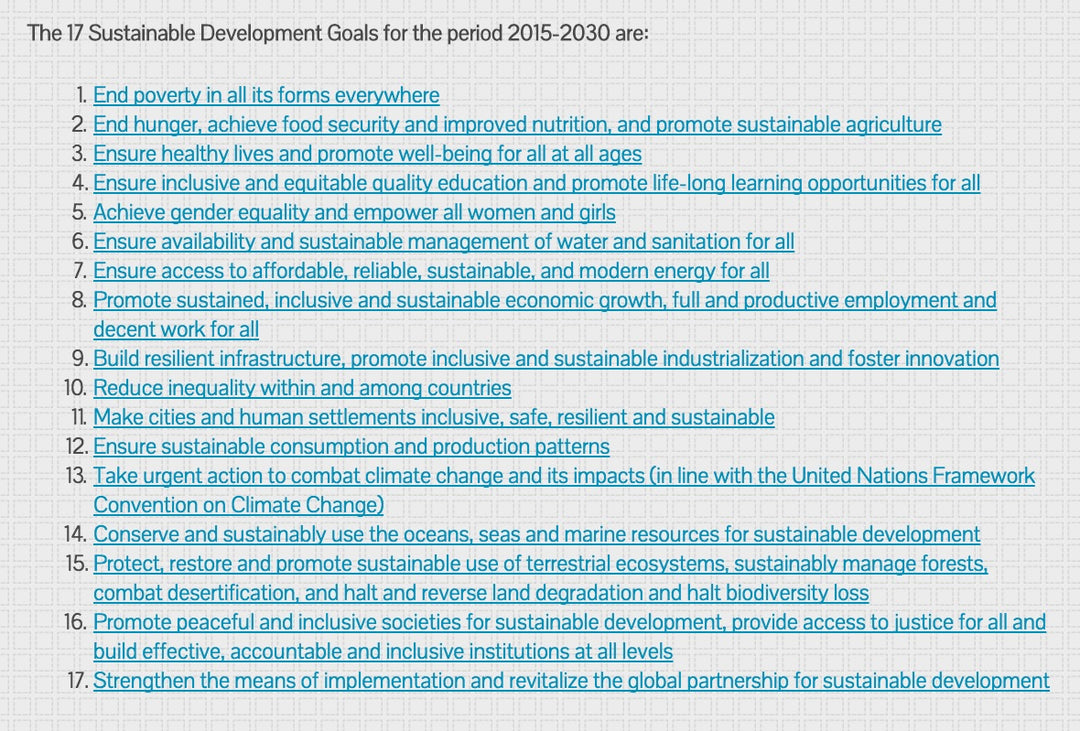Photo: Partner farmers at the Pangoa Cooperative in Satipo, Peru Higher Grounds is a proud member-owner of Cooperative Coffees, the world's only fair trade, organic coffee importing cooperative. We buy our coffee through Cooperative Coffees because we believe in the power of cooperation and long-term relationships. For every pound of coffee we...
Posts tagged: relationships
Farmer Feature: Eraldo Garcia of COMSA
The Congo Comeback
Peru Meets Sumatra in Montreal
Last week, our director of coffee Jennifer (on the bottom shelf in the group shot above!) attended a producer-roaster quality exchange at Cooperative Coffees' headquarters in Montreal (Coop Coffees is the importer we co-own with 22 other North American coffee roasting companies). There she met with other Coop Coffees member...
Sustainability, Part 3: Let's Put People First
A circular economic model is the vehicle required for change within the specialty coffee industry. When we operate along a continuous circle across our supply chain, we can build wealth and expertise alongside coffee farmers, rather than in spite of them.
Current leading trends in specialty coffee primarily tie company resources to increasing coffee farm production and quality through capacity building and agricultural inputs. While production and quality investments at coffee origin are necessary components to any "sustainable" trading model in the coffee industry, increasing agricultural support (under the guise of combating climate change) fall grossly short from anything even close to what our coffee-growing friends would call "sustainable."

